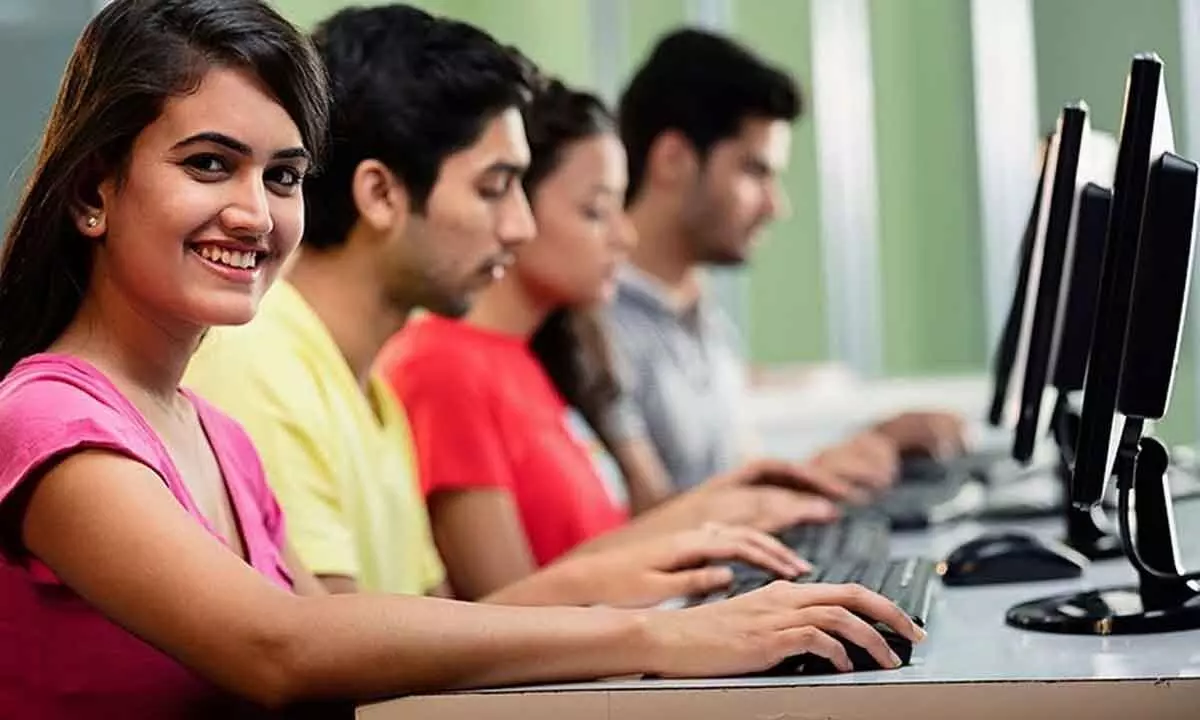Live
- IPL 2025 Auction: Shreyas Iyer sold to PBKS for record-breaking bid of Rs 26.75 cr
- Kyrgyzstan to ban vapes, electronic cigarettes
- How to maximise your EV's range: Tips and tricks for better longevity
- COP29 reaches global climate deal package
- Romanians vote in first round of presidential election
- Beijing braces for cold wave, rain, snow
- Gunman killed, three injured in shooting near Israeli embassy in Jordan
- BGT 2024-25: Bumrah, Siraj pick 3 wickets to put India on top after Jaiswal & Kohli smash tons
- Saira Rahman say stop tarnishing AR Rahman’s name ‘he’s a gem of a person’
- National Consumer Helpline gets 1,000 firms on board to fast-track resolution of complaints
Just In
Education: A G20 common vision's guiding light


Education is the foundation of any prosperous society, and it plays a crucial role in achieving sustainable development. The G20 recognises that education is a key factor in promoting economic growth, reducing poverty, and achieving social inclusion
Education also has broader social benefits. It promotes critical thinking, tolerance, and social cohesion, which are essential for building peaceful and prosperous societies. Education can also promote gender equality, which is critical for achieving sustainable development. In India, education has played a vital role in the country's economic and social progress.
India has made significant strides in expanding access to education. The country has one of the largest education systems in the world, with over a million schools and more than 35,000 higher education institutions. The government has also launched several initiatives to improve access to education, such as the National Education Policy, which assures that no child should be denied access to a quality education because of their socio-cultural background.
Education is crucial for economic growth, and the G20 recognizes this fact. In India, education has played a vital role in the country's economic progress. The country's IT and service sectors, for example, are driven by a highly skilled and educated workforce. These industries have contributed significantly to the country's economic growth and have created job opportunities for millions of people.
However, to sustain this growth, India needs to continue investing in education. The country needs to ensure that its education system produces a workforce that is equipped with the skills needed to compete in the global economy. This includes not just technical skills, but also soft skills such as communication, critical thinking, and problem-solving. Education is also essential for promoting social inclusion, which is a key component of the G20's vision for all. Education provides individuals with the knowledge and skills needed to participate fully in society. It can help break down barriers to social mobility and promote greater equality.
One of the most significant barriers to gender equality in education is access. In many parts of the world, girls and women face significant obstacles to accessing education. These barriers can include poverty, cultural norms, and gender-based discrimination. The G20 recognizes the importance of addressing these barriers and increasing access to education for girls and women.
In India, the government has launched several initiatives to increase access to education for girls. For example, the Beti Bachao Beti Padhao (Save the Daughter, Educate the Daughter) program aims to promote the education of girls and address gender discrimination. The program has helped improve access to education for girls in many parts of the country, particularly in rural areas. Thus, education will definitely be paramount for G20's common vision's guiding light, and through education, we can build a more prosperous and inclusive future for all individuals in the world.
(The author is a Vice President of LPU)

© 2024 Hyderabad Media House Limited/The Hans India. All rights reserved. Powered by hocalwire.com






